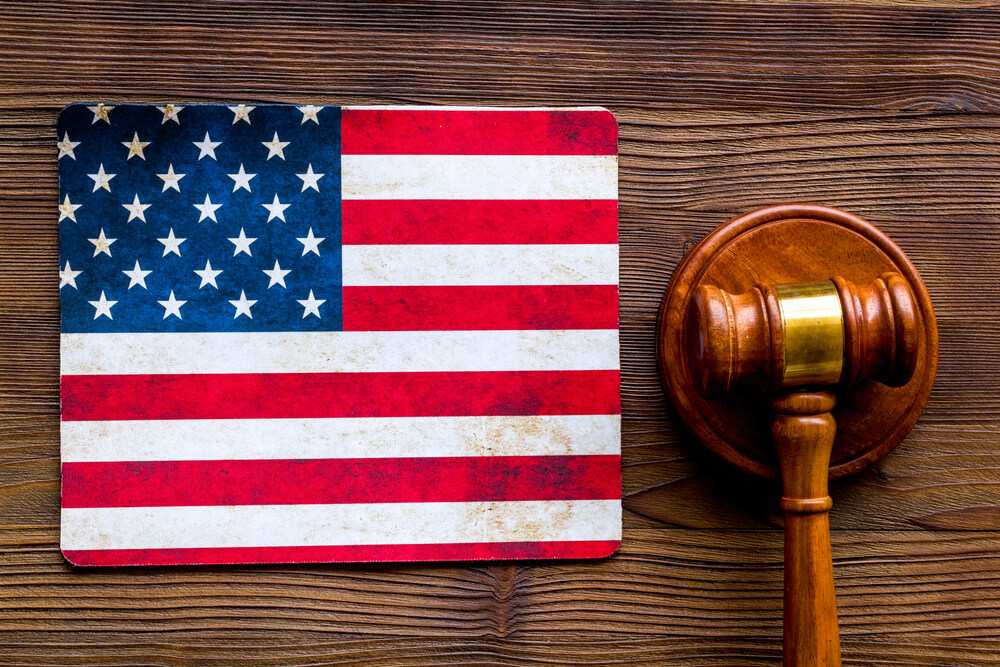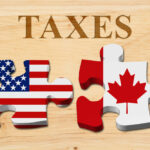
Are online slots legal in the US?
For many people, online slot gaming is a fun and convenient way to pass the time and potentially win big. However, the legality of online slots in the United States is a complex and often confusing issue. With different laws and regulations at the federal and state levels, it can be difficult to know whether online slot gaming is legal in your area. As a result, many players may feel hesitant or unsure about whether they should engage in online slot gaming.
It’s important to note that the legal landscape of online slots in the US is constantly evolving, and what may be legal in one state may be illegal in another. In this blog post, we will see in general how federal law prohibits online gambling activities, including online slot gaming. This is primarily due to the Wire Act, which prohibits the use of wire communications to transmit bets or wagers across state lines. So, stay tuned to discover even more details about the online gambling regulations in the US.
Federal Laws and Regulations Governing Online Slots in the US
When it comes to online slot gaming in the United States, federal law plays a significant role in determining the legality and regulation of this activity. At the heart of federal regulation for online gambling is the Wire Act of 1961, which prohibits the use of wire communications to transmit bets or wagers across state lines. This law was originally enacted to crack down on organized crime and illegal gambling activities, but has since been applied to online gambling as well.
In addition to the Wire Act, there are several other federal laws and regulations that impact the online gambling industry, including the Unlawful Internet Gambling Enforcement Act (UIGEA) of 2006. This law prohibits businesses from knowingly accepting payments related to illegal online gambling activities, and has been used to crack down on illegal online gambling operations.
While federal law prohibits online gambling activities, including online slot gaming, many states have legalized these activities within their borders. This has created a legal grey area for online gambling, as states are able to set their own regulations and restrictions for online gambling activities.
To help clarify the legal landscape of online gambling, the Department of Justice issued a new interpretation of the Wire Act in 2019, stating that the law only applies to sports betting activities and not other forms of online gambling. However, this interpretation is still being debated and challenged in court, and the legality of online slot gaming under federal law remains unclear.
State-by-State Overview of Online Slot Regulations in the US
In general, states that have legalized online slot gaming require operators to obtain licenses and adhere to strict regulations to ensure fair play and player protection. Some states have also entered into interstate gambling agreements to allow residents to play online slots and other games with players in other states. Here’s a state-by-state overview of online slot regulations in the US:
- New Jersey: Online slot gaming is legal and regulated in New Jersey, with several licensed operators offering a wide range of slot games to residents.
- Pennsylvania: Online slot gaming is legal and regulated in Pennsylvania, with licensed operators offering a variety of slot games.
- Michigan: Online slot gaming was legalized in Michigan in 2019, and licensed operators began offering games in early 2021.
- Delaware: Online slot gaming is legal and regulated in Delaware, with licensed operators offering a variety of games to residents.
- Nevada: Online slot gaming is legal in Nevada, but only through licensed land-based casinos.
- West Virginia: Online slot gaming is legal and regulated in West Virginia, with licensed operators offering a variety of games to residents.
- Indiana: Online slot gaming is legal and regulated in Indiana, with licensed operators offering a variety of games to residents.
- Iowa: Online slot gaming is legal and regulated in Iowa, with licensed operators offering a variety of games to residents.
- Virginia: Online slot gaming is legal in Virginia, with licensed operators offering a variety of games to residents.
- New Hampshire: Online slot gaming is legal in New Hampshire, with licensed operators offering a variety of games to residents.
It’s important to note that online slot regulations can change quickly, and it’s always a good idea to check with your state’s gaming commission for the latest information on online slot gaming in your area.
Benefits and Drawbacks of Legalizing Online Slots in the US
The debate over legalizing online slot gaming in the United States has been ongoing for many years, with supporters and opponents on both sides of the issue. Here are some of the benefits and drawbacks of legalizing online slots in the US.
Benefits:
- Increased tax revenue: Legalizing online slot gaming could provide a significant source of revenue for states, through licensing fees and taxes on operator revenue.
- Player protection: Legalizing and regulating online slot gaming could provide players with greater protection, through measures such as age verification and responsible gaming programs.
- Convenience: Online slot gaming is a convenient and accessible form of entertainment, and legalizing it could make it easier for players to enjoy these games from the comfort of their own homes.
- Job creation: Legalizing online slot gaming could create jobs in the industry, from operators to software developers and customer service representatives.
Drawbacks:
- Addiction and problem gambling: Online slot gaming can be addictive, and some opponents of legalization argue that it could lead to an increase in problem gambling and associated social and economic costs.
- Impact on land-based casinos: Legalizing online slot gaming could potentially have a negative impact on land-based casinos, which may see a decline in revenue as players shift to online gaming.
- Difficulty regulating across state lines: Online slot gaming is difficult to regulate across state lines, and opponents of legalization argue that it could lead to a patchwork of inconsistent regulations that could be difficult to enforce.
- Negative societal effects: Some opponents of legalization argue that online slot gaming could have negative effects on society, such as increased crime and social problems.
As with any issue, the pros and cons of legalizing online slot gaming in the US must be carefully considered and weighed against each other. Also, the decision of whether to legalize online slot gaming will depend on a variety of factors, including the views of lawmakers, the potential economic benefits, and concerns about player protection and social impact.
Online Slot Gaming Restrictions for Players in the US
Online slot gaming restrictions for players in the US can vary depending on a number of factors, including state and federal laws, as well as individual online gaming operator policies. At the federal level, the Wire Act of 1961 prohibits the use of wire communications to transmit bets or wagers across state lines. This has created a significant obstacle for online gambling operators, as it effectively prohibits them from accepting bets or wagers from players located in other states.
However, the Department of Justice issued a new interpretation of the Wire Act in 2011, stating that it only applied to sports betting activities and not other forms of online gambling. This has opened the door for states to legalize and regulate online slot gaming and other forms of online gambling within their borders.
At the state level, regulations regarding online slot gaming can vary widely. Some states have legalized and regulated online slot gaming within their borders, while others have prohibited it altogether.
In addition to state and federal laws, individual online gaming operators may also have their own restrictions and policies regarding online slot gaming. These may include restrictions on the types of payment methods accepted, age verification requirements, and limits on the amount of money that can be wagered.
Players in the US who are interested in online slot gaming should be aware of the restrictions and regulations that apply to their specific state and the online gaming operators they wish to use. This can help them ensure that they are playing within the bounds of the law and that they are not risking legal penalties or other negative consequences.
Role of Gaming Commissions in Regulating Online Slots in the US
Gaming commissions play a critical role in regulating online slot gaming in the United States. These organizations are responsible for ensuring that online gaming operators are operating in compliance with state and federal laws and regulations, and that players are protected from fraud, exploitation, and other forms of harm.
Gaming commissions may be established at the state or tribal level, depending on the jurisdiction. They are typically responsible for issuing licenses to online gaming operators, conducting background checks on operators and their employees, and monitoring the operations of these companies to ensure compliance with all relevant laws and regulations.
Apart from these regulatory functions, gaming commissions may also investigate complaints from players and enforce rules against violators. To protect players and maintain the integrity of the industry, licenses may be revoked, fines imposed, or other measures may be taken.
Online slot gaming in the US is regulated by gaming commissions, ensuring that the industry operates in a safe and responsible manner and that players are protected from harm. In order to play legally, players should be aware of these organizations and seek out reputable gaming commissions that license and regulate online gaming operators.
FAQs
Can I legally play online slots from my mobile device?
It depends on the state in which you are located. Some states have legalized and regulated online slot gaming within their borders, while others have prohibited it altogether. It is important to check the specific laws and regulations in your state before playing online slots on your mobile device.
Do online slot operators need to be licensed in order to operate in the US?
Yes, online slot operators must be licensed in order to operate legally in the US. This licensing process is typically overseen by state gaming commissions, which are responsible for ensuring that operators are operating in compliance with all relevant laws and regulations.
How do state laws regarding online slot gaming differ from one another?
State laws regarding online slot gaming can vary widely. Some states have legalized and regulated online slot gaming within their borders, while others have prohibited it altogether. Some states may also have restrictions on the types of payment methods that can be used for online slot gaming, or may have specific age verification requirements for players.
Are online slot operators required to verify the age of their players?
Yes, online slot operators are required to verify the age of their players in order to comply with state and federal laws. This typically involves requesting documentation such as a driver’s license or passport, and may also involve using third-party age verification services to confirm a player’s identity and age.


